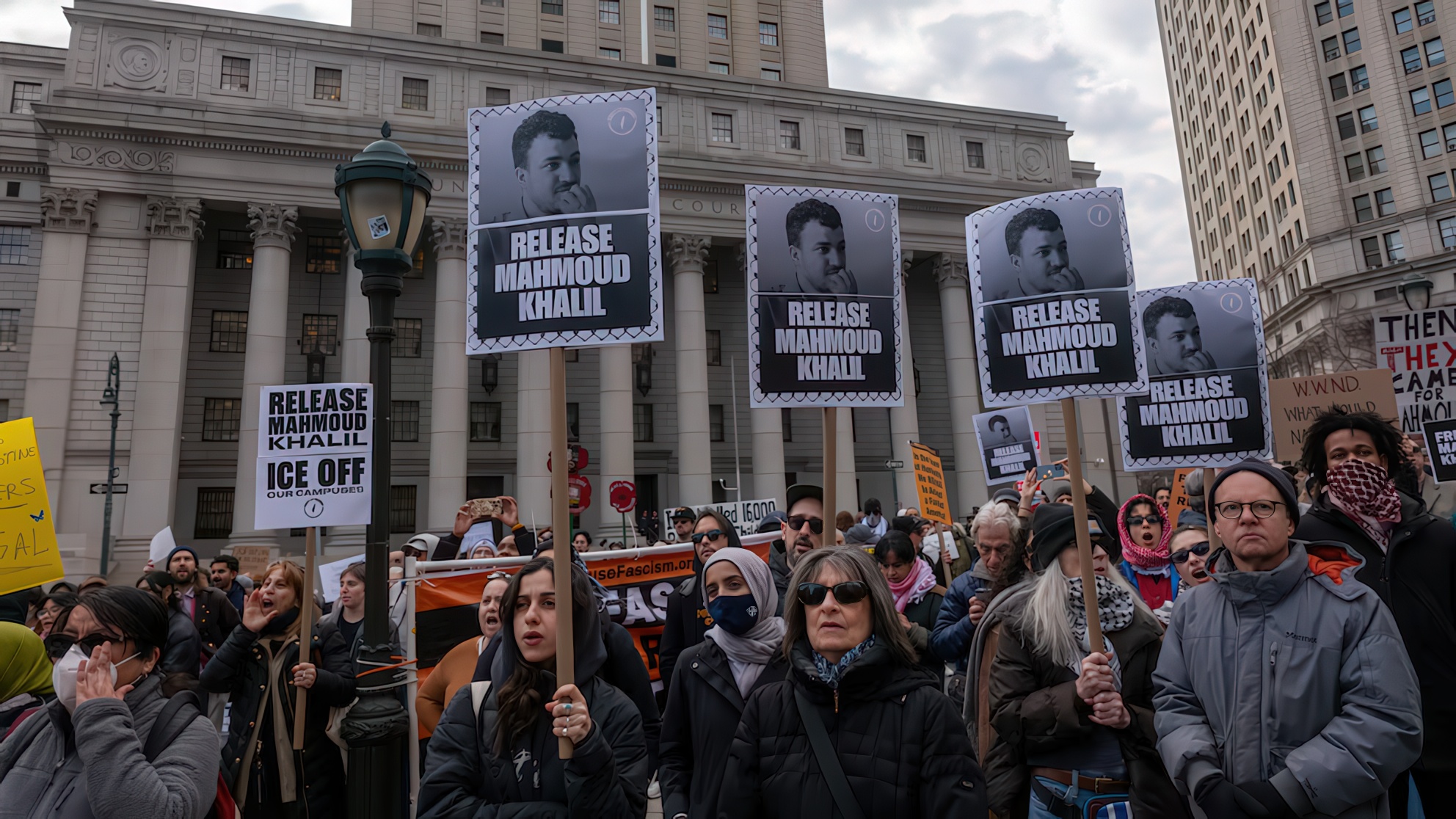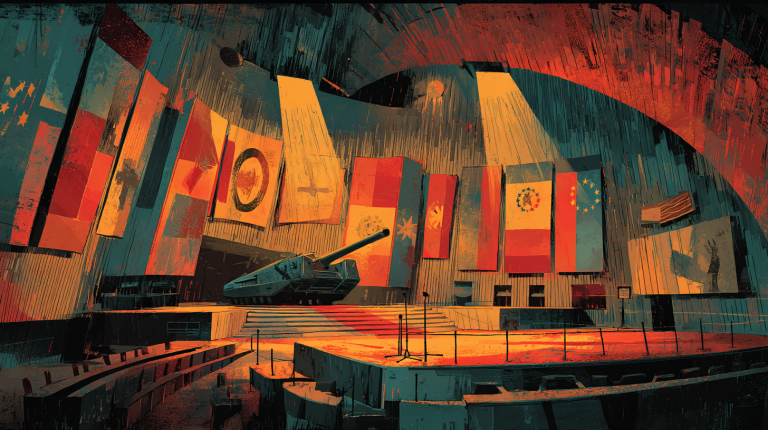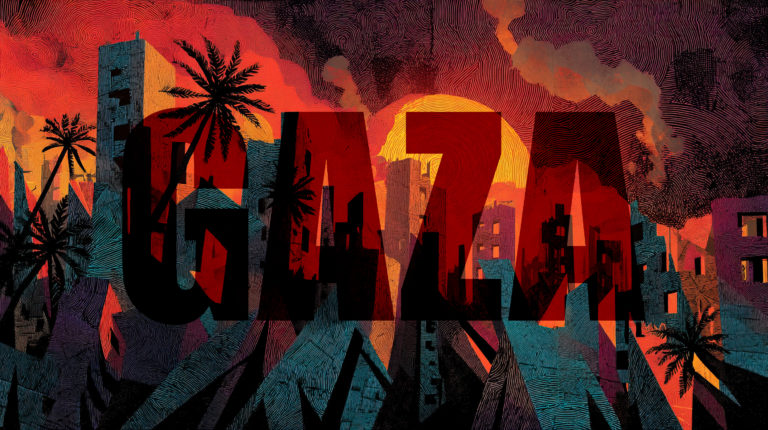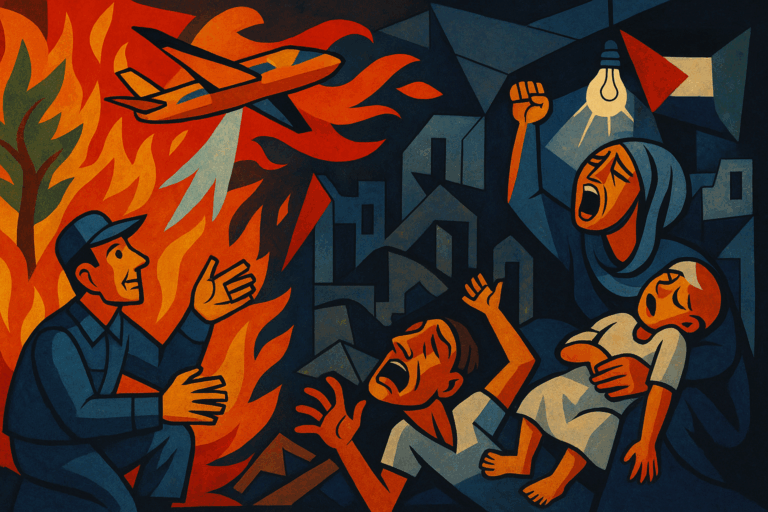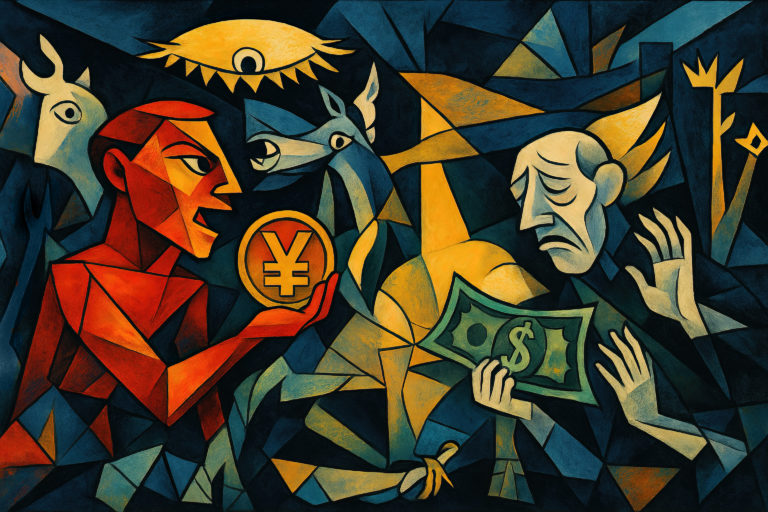Mahmoud Khalil, Political Prisoner? Resistance Organises Against Migratory Repression
An Activist Behind Bars: Repression in Motion
The arrest of Mahmoud Khalil, a Palestinian activist and Columbia University graduate, has sent shockwaves across the United States. On 8 March 2025, Immigration and Customs Enforcement (ICE) agents apprehended him at his New York residence, accusing him of links to Hamas under the guise of national security. His lawyers denounce a politically motivated arrest aimed at silencing a prominent pro-Palestinian activist.
This incident comes amid an unprecedented crackdown by the Trump administration on pro-Palestinian movements. Since 2024, over 200 pro-Palestinian activists have been arrested or deported under the pretext of national security threats, according to a report by the Centre for Constitutional Rights. Additionally, detentions of pro-Palestinian activists have surged by 45% since Trump’s return to power, as reported by The Guardian in February 2025.
Trump Tower Under Siege: A Resistance Act
In response to this arrest, around 150 activists from the group Jewish Voice for Peace staged a spectacular protest in the lobby of Trump Tower on 13 March 2025. Wearing red t-shirts bearing the slogan “Jews Say: Stop Arming Israel,” they denounced Khalil’s imprisonment as unjust. Among the chants heard: “Fight Nazis, Not Students” and “Free Mahmoud, Free Palestine.”
The police, in line with Trump-era crackdown tactics, arrested 98 protesters for trespassing and obstructing governmental administration. “We were peaceful, but they used disproportionate force against us, some were thrown to the ground and handcuffed with shocking brutality,” testifies Sarah Levinson, an activist present at the scene. This event echoes the violent suppression of anti-Trump protests and Black Lives Matter demonstrations.
A Disturbing Precedent: Repressing Dissent
The Trump administration justifies this arrest on national security grounds. In an official statement, a spokesperson for the Department of Homeland Security declared: “We cannot allow individuals linked to extremist organisations to operate freely on our soil. Our actions are motivated by the protection of our citizens and adherence to immigration laws.”
However, no concrete evidence has been presented linking Khalil to terrorist activities. “We have solid proof that Khalil has never had any connection to terrorist organisations. His arrest is solely based on his political opinions,” states James Cartwright, a civil rights attorney.
His supporters denounce the manipulation of immigration laws to silence pro-Palestinian advocacy. “It is extremely rare for a permanent resident to be detained this quickly and without clear justification. This is a selective and abusive application of immigration law,” warns an immigration law expert cited by The Guardian.
A Battle Beyond Khalil
The Khalil case extends far beyond a single arrest. It highlights an authoritarian drift where political expression becomes grounds for deportation. Amid this crackdown, resistance is building: protests are planned in Washington, Chicago, and San Francisco, while a documentary, The Encampments, tracing Khalil’s role in the Columbia protests, is set to be screened at several film festivals.
Meanwhile, Khalil remains detained in Louisiana, far from his family. “He hasn’t even been granted access to a lawyer for days, a blatant violation of his rights. According to federal immigration law, a detainee is entitled to a hearing before a judge within 48 hours, which has clearly not been respected,” denounces Lisa Cohen, a lawyer advocating for migrant rights. His legal team is fighting for his release on bail. Will this case mark a turning point in Trump’s immigration policies, or will it further deepen the divide between activists and the state?
Conclusion: Towards the Criminalisation of Activism?
Mahmoud Khalil’s case represents a blatant attempt to criminalise dissent under the pretext of immigration enforcement. This pattern is not new: in 2019, activist Mohammad Tanvir was falsely accused of terrorist ties after refusing to cooperate with the FBI, leading to his visa being revoked before he was later exonerated. More recently, in 2024, Youssef Al-Habibi, another pro-Palestinian activist, was detained without valid charges and deported to Jordan after eight months in custody. These cases illustrate a worrying trend of using immigration laws as a tool for political repression.
If Khalil’s incarceration is upheld, it will set a dangerous precedent for further persecution of activists under the guise of national security. The Trump administration is testing the limits of American democracy. How far will it go to suppress opposition? The coming weeks will be crucial for Khalil—and for all those who refuse to remain silent in the face of injustice…
G.S.
